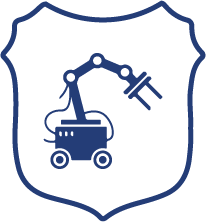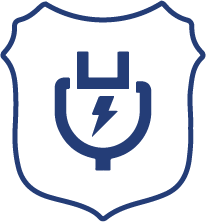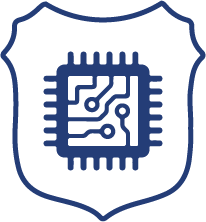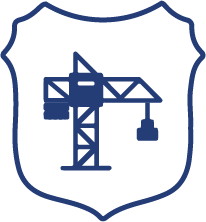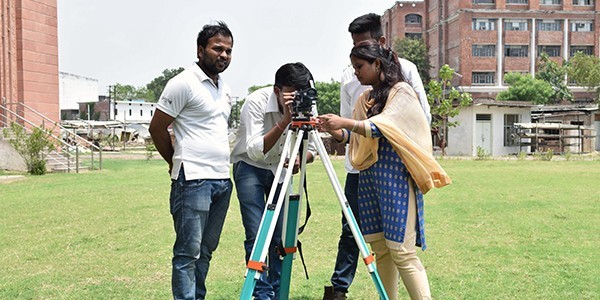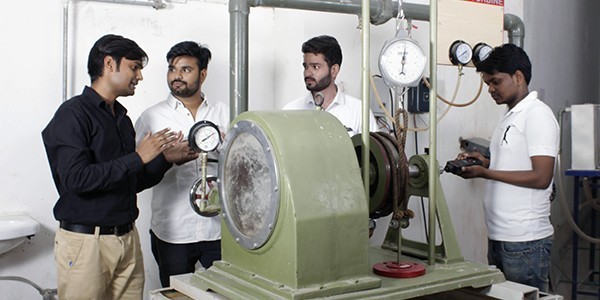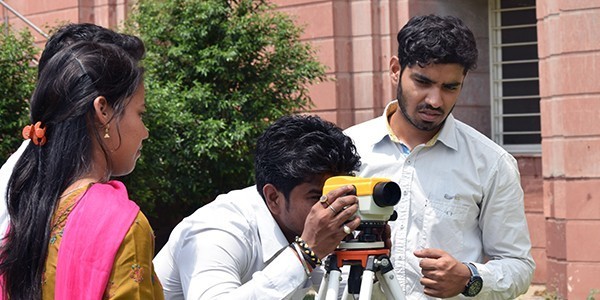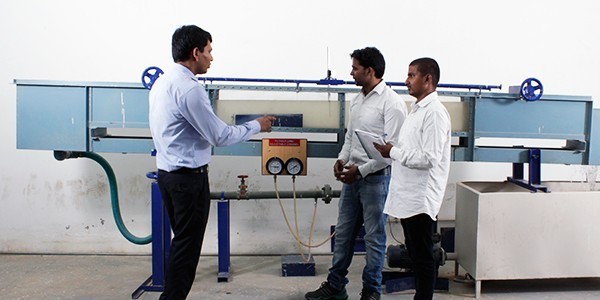B. Tech – Civil Engineering
Educational Objectives
Civil Engineering is the study of one of the core disciplines of engineering, and one of the most important ones too. Especially with the increasing population and the limited space our Earth has, the world is in dire need of a magic that can only be created by professionals like Civil engineers. Even speaking of our country, which supports more than 14 percent of the world’s population on just about 3 percent of the land, India needs capable and hardworking Civil engineers to balance proportions.
Thus, reputed to be the best B.Tech College in Lucknow, Babu Banarasi Das University (BBDU), based on their understanding of this demand for Civil Engineers, now provide students an all-round course.
BBDU provides, to all its students, a course:
- With highly educated and well-experienced faculty, with a proactive and encouraging style of teaching, to boost morale as well as knowledge;
- With state-of-the-art laboratories and civil equipment, for proper practical education;
- With emphasis on practical trainings and internships for professional training, practical applications and education on real-time problems;
- With vast reading materials, as well as, access to international journals and papers.
Opportunities For Civil Engineers
BBDU has made it to be the top Civil Engineering College in Lucknow. Civil engineers design, plan, organize and oversee the building of structures such as dams, bridges, gas and water supply systems, sewerage systems and roads.
Civil engineers may work for:
- Private engineering consultancies
- Regional and local government authorities
- Government agencies, such as the Land Transport Authority
- Construction firms and property developers
- Infrastructure and utility companies, such as railway and electricity companies.
Program Outcomes
| PO1 | Engineering Knowledge: Apply the knowledge of mathematics, science, engineering fundamentals and an engineering specialization to the solution of complex engineering problems. |
| PO2 | Problem Analysis: Identify, formulate, review literature and analyse complex engineering problems reaching substantiated conclusions using first principles of mathematics, natural science and engineering sciences. |
| PO3 | Design / Development of Solutions: Design solutions for complex engineering problems and design system components or processes that meet the specified needs with appropriate consideration for the public health and safety and the cultural, societal and environmental considerations. |
| PO4 | Conduct Investigations of Complex problems: Use research-based knowledge and research methods including design of experiments, analysis and interpretation of data, and synthesis of the information to provide valid conclusions. |
| PO5 | Modern Tool Usage: Create, Select, and apply appropriate techniques, resources and modern engineering and IT tools including prediction and modelling to complex engineering activities with an understanding of the limitations. |
| PO6 | The Engineer and Society: Apply reasoning informed by the contextual knowledge to assess societal, health, safety, legal and cultural issues and the consequent responsibilities relevant to the professional engineering practice. |
| PO7 | Environment and Sustainability: Understand the impact of the professional engineering solutions in societal and environmental context and demonstrate the knowledge of, and need for sustainable development. |
| PO8 | Ethics: Apply ethical principles and commit to professional ethics and responsibilities and norms of the engineering practice. |
| PO9 | Individual and Team Work: Function effectively as an individual and as a member or leader in diverse teams and in multidisciplinary settings. |
| PO10 | Communication: Communicate effectively on complex engineering activities with the engineering community and with the society at large, such as, being able to comprehend and write effective reports and design documentation, make effective presentations, and give and receive clear instructions. |
| PO11 | Project Management and Finance: Demonstrate knowledge and understanding of the engineering and management principles and apply these to one’s own work, as a member and leader in a team, to manage projects and in multidisciplinary environments. |
| PO12 | Life Long Learning: Recognize the need for, and have the preparation and ability to engage in independent and lifelong learning in the broadcast of technological change. |
Program Specific Outcomes
| PSO1 | Inculcating in students, technical competencies to deal with practical aspects of Civil Engineering |
| PSO2 | Enhancing the employability skills to have a successful career |
Syllabus
Engineering Courses
Labs
- Surveying Lab
- Fluid Mechanics Lab
- Engineering Geology Lab
- Civil Engineering Material Lab
- Quantity Survey & Estimation Lab
- Civil Engineering Drawing Lab
- Geoinformatics Lab
- Hydraulic Machine Lab
- Geotechnical Engineering Lab
- Environmental Engineering Lab
- Cad Lab
- Cad Lab 1
- Cad Lab 2
- Transportation Engineering Lab
- Structural Detailing Lab
- Air & Noise Pollution Lab
- Concrete Structure Lab
- Traffic Survey & Analysis Lab
- Water & Waste Water Treatment Lab


